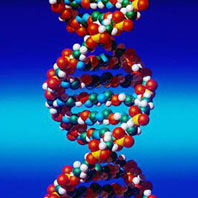Medical Diagnostic Patent


The U.S. Supreme Court decided not to consider a case (LabCorp v. Metabolite Laboratories) involving a medical diagnostic test patent. The decision not to hear the case effectively upholds the patent. This case involved "a patent that claims a process for helping to diagnose deficiencies of two vitamins, folate and cobalamin. The process consists of using any test (whether patented or unpatented) to measure the level in a body fluid of an amino acid called homocysteine and then noticing whether its level is elevated above the norm; if so, a vitamin deficiency is likely".
A brief report on the decision (in the NY Times) is here and the dissenting opinion is available here.
In the dissenting opinion, Justice Breyer argued that "those who engage in medical research, who practice medicine, and who as patients depend upon proper health care, might well benefit from this Court’s authoritative answer" (to these questions). Here are a few of the sage insights in Breyer's dissenting opinion:
If I am correct in my conclusion in Part III that the patent is invalid, then special public interest considerations reinforce my view that we should decide this case. To fail to do so threatens to leave the medical profession subject to the restrictions imposed by this individual patent and others of its kind. Those restrictions may inhibit doctors from using their best medical judgment; they may force doctors to spend unnecessary time and energy to enter into license agreements; they may divert resources from the medical task of health care to the legal task of searching patent files for similar simple correlations; they may raise the cost of healthcare while inhibiting its effective delivery.
....Even if Part III is wrong, however, it still would be valuable to decide this case. Our doing so would help diminish legal uncertainty in the area, affecting a “substantial number of patent claims.” See Brief for United States as Amicus Curiae 12–14 (filed Aug. 26, 2005). It would permit those in the medical profession better to understand the nature of their legal obligations. It would help Congress determine whether legislation is needed.
In either event, a decision from this generalist Court could contribute to the important ongoing debate, among both specialists and generalists, as to whether the patent system, as currently administered and enforced, adequately reflects the “careful balance” that “the federal patent laws. . . embod[y].”
Breyer's opinion captures a number of important insights about the impact patents have on innovation and the role the Courts should play in trying to enhance our deliberation on important societal concerns.
The topic of genomic intellectual property is immensely important for to the issue of genetic justice. I hope to spend a good deal of this coming academic year working on the topic of gene patents, so I will have more to say about this in future blogs.
Cheers,
Colin


<< Home